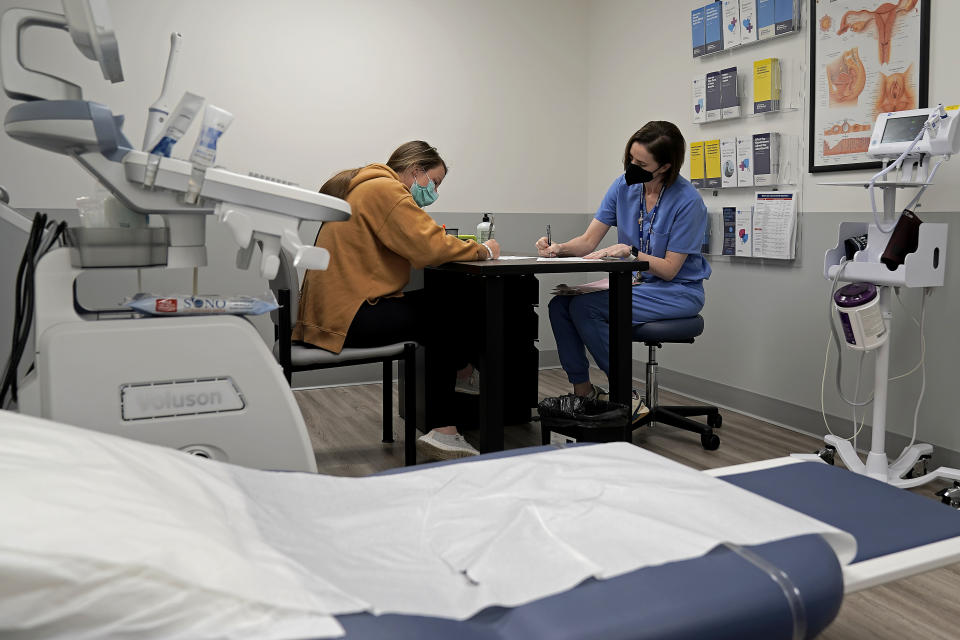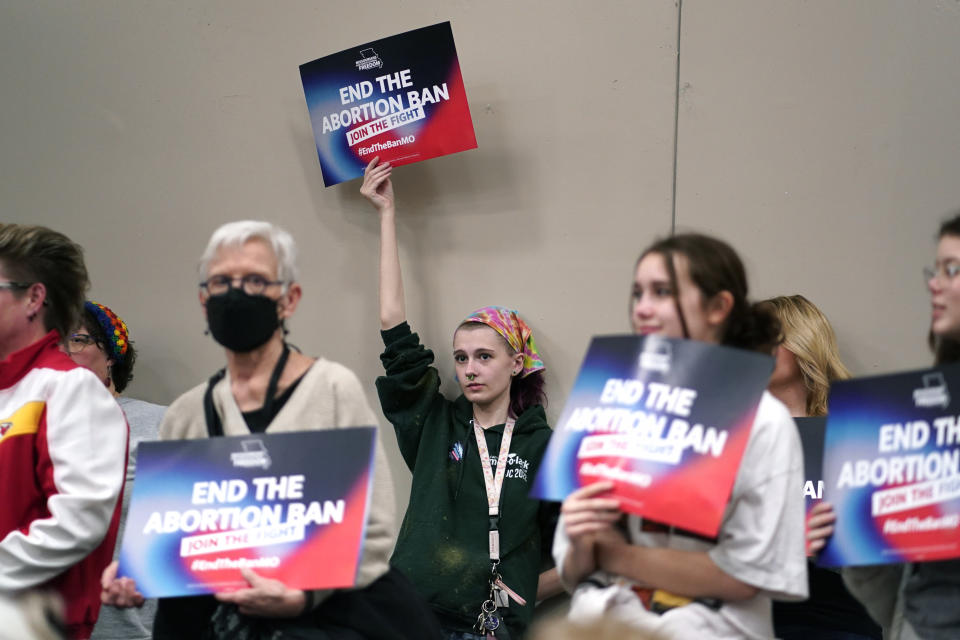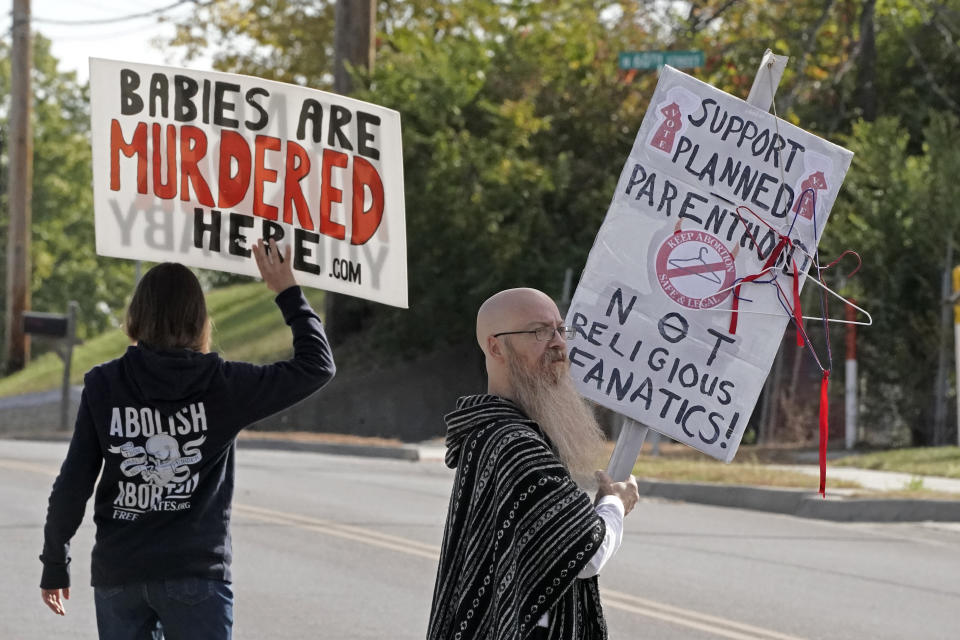New Kansas abortion clinic will open to help meet demand from restrictive neighboring states
A new abortion clinic will open in southeast Kansas this fall, bolstering the state’s role as a regional hub for reproductive health services whose neighbors have severely restricted access since the U.S. Supreme Court overturned Roe v. Wade.
Comprehensive Health of Planned Parenthood Great Plains announced Tuesday that Pittsburg, Kansas, will be home to a new facility providing abortion procedures and pills, as well as pregnancy services, contraception, and testing and treatment for sexually transmitted diseases.
After the Roe reversal, Kansas was the first state where voters weighed in on abortion at the ballot box, resoundingly rejecting a constitutional amendment that could have led to an abortion ban in August 2022.
Since then, the state — which prohibits abortions after 21 weeks of pregnancy — has become a destination for people from more restrictive nearby states seeking abortion.
In March 2023, 44% of abortion patients at Planned Parenthood clinics in Kansas traveled more than 250 miles (402 kilometers), compared with just 1% two years earlier, according to the organization. More than half of abortion patients are now from Texas, and some have come from as far as Florida in recent weeks, said Emily Wales, president and chief executive officer of Comprehensive Health of Planned Parenthood Great Plains.
“You walk across the state line from Missouri to Kansas and you automatically become a freer person who can actually take care of your medical needs in a different way,” Wales said. “We see it on the faces of patients who literally breathe easier when they get into Kansas.”
The abortion landscape across the U.S. has been in flux after the Supreme Court's June 2022 decision that revoked a constitutional right to abortion nationwide.
New bans or restrictions have taken effect in most Republican-led states, including 14 where abortion is now outlawed in all stages of pregnancy, with some exceptions, and three more where it’s banned after about six weeks of pregnancy – often before women realize they’re pregnant.
For people from those states seeking to end their pregnancies, the main options are either getting abortion pills via telehealth or underground networks, or traveling out of state for abortion pills or procedures.
There were roughly as many in-state residents as out-of-state residents seeking abortions in Kansas in the years before the Supreme Court decision, according to statistics reported to and published by the state's health department. That's largely because Kansas City, Kansas, is easily accessible from Missouri, which historically has been limited in providers of abortion services.
In 2022, the figure for out-of-state residents given consent forms more than doubled to 8,475, state data shows.
Pittsburg, Kansas, is more than 100 miles (161 kilometers) south of Kansas City, and 150 miles (241 kilometers) east of Wichita. That means the new clinic location will be hours closer to patients who may be traveling from Missouri, Arkansas and Oklahoma — and even as far as Louisiana or Texas — where the procedure is restricted.
Pittsburg itself has a dearth of providers for contraception and other sexual health services, Wales said, but it has the “added benefit of being so closely located to neighboring states.” The Pittsburg facility will later provide gender-affirming services as well.
Clinics are shifting to accommodate out-of-state demand elsewhere, too. New Mexico has pledged $10 million to a new facility in Las Cruces, near the Texas border; a clinic opened last year in Western Maryland, a few miles from West Virginia; and two new clinics have opened in the southern Illinois city of Carbondale.
Ingrid Duran, director of state legislation for National Right to Life, said it's not surprising to see new clinics pop up to meet out-of-state demand because of the financial opportunity for providers, she said.
“And it's not surprising to know that people who want to get abortions would travel out of the state if it's not being offered there,” she said. She said states should also offer resources that “hopefully persuade abortion-minded women to choose something different."
Caitlin Myers, an economics professor at Middlebury College who researches abortion policies, said she’s counted 78 abortion facilities opening across the U.S. between May 1, 2022, and April 1 of this year. That number includes 10 moved from another location in the same state, seven that moved across state lines and 61 new providers.
The growth in providers situated near state lines has generated new efforts from those opposed to abortion to restrict the practice, calling it “abortion trafficking.”
A Texas man is trying to force his former partner to say who helped her obtain an out-of-state abortion in a step toward civil enforcement of the Texas abortion ban.
Lawmakers in at least two states have taken aim at people who help minors access abortion without parental consent. Tennessee legislators last month passed a bill that would make it illegal to help minors obtain abortions without parental consent; Republican Gov. Bill Lee has not yet taken action on it. Idaho adopted a similar law last year, though a federal judge has blocked enforcement while its constitutionality is questioned.
Kansas Democratic Gov. Laura Kelly is a strong supporter of abortion rights, but the GOP-controlled Legislature has veto-proof majorities and strong contingents opposed to abortion.
This year, the Legislature passed bills — and later overrode Kelly's vetoes — for statutes that will require abortion providers to ask patients why they are terminating their pregnancies and report the answers to the state, and that will make it a specific crime to coerce someone into having an abortion.
___
Fingerhut reported from Oakland, New Jersey, and Mulvihill reported from Cherry Hill, New Jersey.



